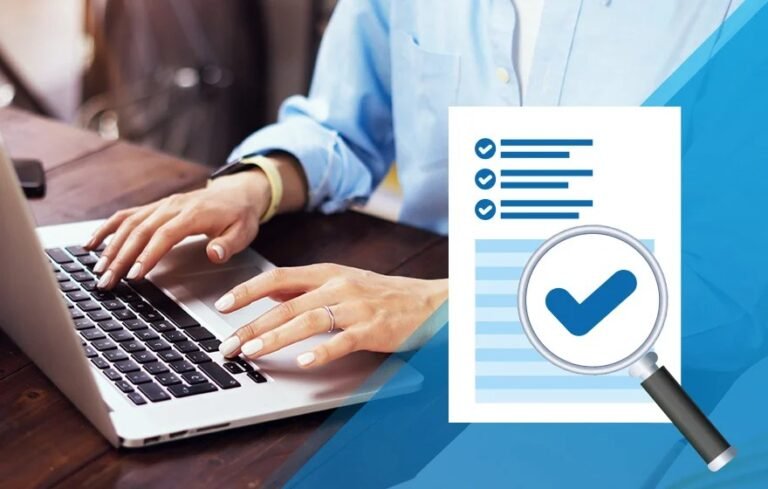What Every Entrepreneur Must Know Before Buying a Business in 2025
Buying a business has always been one of the smartest ways for entrepreneurs to fast-track their journey into ownership. Instead of building from the ground up, purchasing an existing business allows you to inherit customers, revenue, systems, and brand reputation. But in 2025, the dynamics of acquisitions have shifted. Entrepreneurs must approach this decision with sharper insight, modern strategies, and a keen awareness of new trends shaping the market.
One of the most valuable resources for aspiring buyers is guidance from trusted industry experts. Platforms like throttllicensing.com offer essential insights into licensing, franchising, and business opportunities, making the research phase much easier. By equipping yourself with the right knowledge early, you can avoid costly mistakes and step into ownership with confidence.
Why Buying a Business in 2025 Is Different
The world of business acquisitions today looks very different than it did even five years ago. Economic shifts, rapid technological adoption, and evolving consumer behaviors have changed the playing field. Here’s why entrepreneurs need to be extra cautious and informed:
- Digitalization at the Core – From e-commerce to cloud systems, businesses rely heavily on digital platforms.
- Sustainability Matters – Buyers must evaluate a business’s environmental and ethical practices to meet customer expectations.
- Global Competition – Businesses are no longer competing locally but against international players.
- New Financing Options – Access to funding, alternative loans, and investment platforms have grown.
- Post-Pandemic Adjustments – Many industries reshaped operations, with lasting impacts on revenue models.
These factors mean entrepreneurs need to go beyond financial statements and assess how adaptable, innovative, and future-proof the business truly is.
Key Considerations Before Buying a Business
Before signing any deal, entrepreneurs should pause and evaluate the big picture. Buying a business is not just about inheriting revenue—it’s about ensuring long-term stability and growth.
Ask the Right Questions
Start with these crucial questions:
- Why is the business for sale?
- Is there consistent profitability across multiple years?
- Does the business have loyal customers and strong retention?
- What is the competitive landscape like?
- Are there hidden liabilities or debts?
Evaluate Industry Potential
A strong business in a weak industry may struggle in the long term. Entrepreneurs should analyze:
- Current market demand.
- Growth forecasts for the industry.
- Technological disruptions on the horizon.
The Step-by-Step Process of Buying a Business in 2025
Buying a business is a multi-stage process that requires diligence, patience, and professional guidance. Here’s the breakdown:
Step 1: Define Your Goals and Criteria
Every entrepreneur should start with clarity. Decide:
- What industry excites you most?
- Do you want a steady business or high-growth potential?
- Are you willing to be hands-on, or do you prefer a management team?
Having defined goals helps narrow the search.
Step 2: Search and Shortlist Opportunities
In 2025, opportunities are listed across online platforms, brokerage firms, and networking groups. Entrepreneurs should create a shortlist by reviewing:
- Financial performance.
- Customer base.
- Business reputation.
- Alignment with personal interests.
Step 3: Perform Detailed Due Diligence
Due diligence is where deals are made or broken. Before committing, assess:
- Financial Records – Revenue, expenses, tax filings, debt obligations.
- Operations – Supply chain, staffing, inventory systems.
- Legal Compliance – Licenses, permits, intellectual property.
- Market Positioning – Customer loyalty and competition strength.
Step 4: Business Valuation
A fair valuation ensures you don’t overpay. Methods include:
- Asset-based valuation.
- Earnings multiplier.
- Market comparisons.
Hire professionals to conduct an unbiased assessment.
Step 5: Secure Financing
Explore financing options:
- Bank loans.
- Private investors.
- Seller financing agreements.
In 2025, alternative financing like crowdfunding or revenue-sharing models is also growing.
Step 6: Negotiate the Deal
Negotiation involves more than just price. Consider:
- Payment terms.
- Transition support from the seller.
- Inclusion of assets like trademarks, inventory, or leases.
Step 7: Close and Transition
Once contracts are signed, focus on smooth transition. Build trust with employees, maintain customer relationships, and gradually implement improvements.
Common Mistakes Entrepreneurs Make When Buying a Business
Even experienced entrepreneurs can make missteps. Being aware of these mistakes will help you avoid them:
- Skipping Due Diligence – Rushing into a deal without reviewing financials or liabilities.
- Overpaying – Accepting inflated valuations without proper assessment.
- Ignoring Culture Fit – Not considering whether your values align with the existing team and operations.
- Failing to Plan Post-Purchase – Not having a clear strategy for the first 100 days.
- Underestimating Competition – Buying a business in a saturated or declining market.
Key Trends Shaping Business Buying in 2025
Entrepreneurs must also pay attention to trends that can impact their decision:
- Rise of AI and Automation – Businesses with strong digital infrastructure are more valuable.
- Subscription-Based Models – Recurring revenue streams make businesses more attractive.
- Remote Work Operations – Flexibility in workforce management is a competitive edge.
- Consumer Demand for Local Experiences – Businesses rooted in community values often thrive.
- Sustainable Practices – Environmentally conscious businesses attract both customers and investors.
Checklist Before Buying a Business
Here’s a handy checklist entrepreneurs can use before sealing the deal:
- Review at least three years of financial statements.
- Confirm legal compliance and licensing.
- Assess customer satisfaction and loyalty.
- Understand supplier relationships.
- Evaluate growth potential.
- Plan financing and repayment strategy.
- Draft a clear transition plan.
Why Professional Guidance Matters
Buying a business involves legal, financial, and operational complexities. Entrepreneurs should always consult:
- Business Brokers – To identify and evaluate opportunities.
- Accountants – To verify financial health.
- Lawyers – To review contracts and compliance.
- Industry Experts – For market insights.
Expert support not only prevents risks but also ensures smoother negotiations and transitions.
Conclusion
Buying a business in 2025 offers incredible opportunities for entrepreneurs, but it also demands informed decision-making. From performing due diligence to understanding industry trends, each step is vital in securing a profitable investment. Entrepreneurs who take the time to ask the right questions, consult professionals, and evaluate both risks and rewards are far more likely to succeed.
Remember, ownership isn’t just about acquiring assets—it’s about embracing the responsibility of growth, innovation, and leadership. By approaching the process strategically, you’ll be well on your way to building a thriving business in the evolving landscape of 2025.







